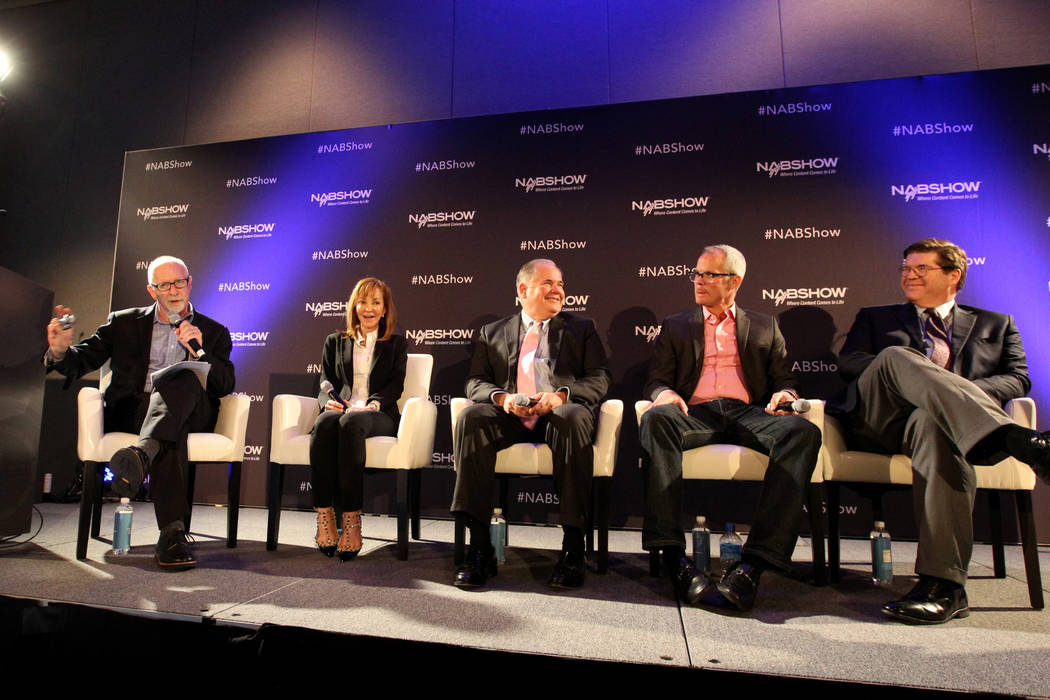Technology is giving radio new life, NAB speakers say

Voice-activated technology and better data analysis are giving the struggling radio industry something to cheer about.
Amazon Echo and Google Assistant are helping to sustain and build the audience for radio programs while generating valuable customer data, experts said last week during the annual National Association of Broadcasters convention.
“What I am excited about is the role (these devices) give us to reconnect and get back in the home,’’ said Steve Newberry, executive vice president for strategic planning at NAB, which lobbies on behalf of the industry.
The NAB Show ran through Thursday and was once dominated by companies whose main business was radio and television.
The confluence of media, technology and entertainment has fundamentally changed the broadcasting industry and the show itself. Amazon, Google and Microsoft exhibited at NAB this year while representatives from Ford, Honda and General Motors participated alongside broadcast companies.
Radio revenue has been negatively impacted over the past decade as advertisers seek to connect with consumers more and more through social media rather than over airwaves. Radio can recover those lost dollars if it can show that it knows who its listeners are, the panelists said.
“Radio advertisement is effective. We are losing dollars just because (other media) can show proof of what they can deliver,’’ Tim Murphy, senior vice president for corporate business development at Entercom, told the audience of about 150 industry specialists.
He added that broadcasters must also build relationships with top technology and automobile companies to make sure radio remains relevant in connected devices, including cars.
“We have to build senior relationships at Amazon, Google, GM and Ford,’’ Murphy said.
As more connected cars hit the streets and more people install Amazon Echo and Google Assistant in their homes, radio broadcasters are getting a chance to increase their data collection and know their listener better, the panel said.
Harnessing “big data will allow us to create better programming and deliver better sales,’’ said Bill Hendrich, executive vice president for radio at Cox Media Group. With the help of third party data companies, broadcasters can now tell advertisers more about their audience and what products they are interested in.
Radio stations need to understand that information about their listeners is their big asset, something that newspapers failed to grasp years ago, Murphy and Newberry said.
“The value of data as currency is not going away,” Murphy said.
The growing importance of data is forcing the radio industry to bring in new specialists, they said.
“Our company is even considering hiring a data scientist. Who thought about that two years ago?’’ said Caroline Beasley, chief executive officer of Beasley Media Group.
The panelists said that streaming platforms were not yet economical, but that radio stations still have to be there. Newberry said the streaming platforms and radio broadcasters need to find a compromise.
“We would be much healthier if the two industries could get together,’’ he said.
Radio stations must see themselves as audio companies and expand into podcasting, the panelists said. Broadcasters have the popular radio personalities to build a significant audience for their podcasts.
“This is an opportunity. We have the platforms to develop more personalities. We are not going to look at it as a separate industry,’’ Murphy said.
Contact Todd Prince at 702-383-0386 or tprince@reviewjournal.com. Follow @toddprincetv on Twitter.